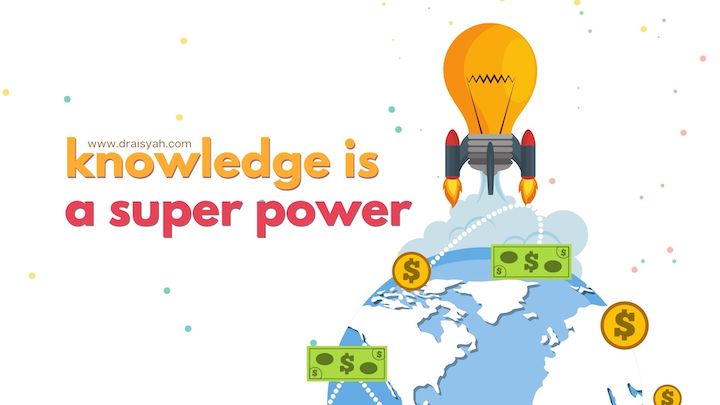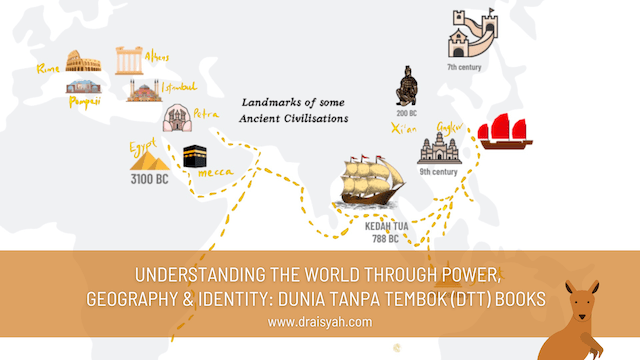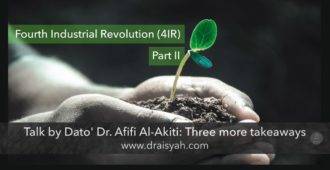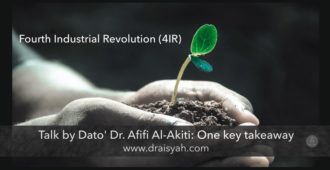Power, geography & identity. Three key factors towards understanding the events that are happening around us and the world. In this post, I share my reflections that emerged after reading Dunia Tanpa Tembok (DTT) books (modified from my FB post).
For some time, I’ve been wanting to understand how things work between countries i.e. its relationships with one another in the context of history (for example, ancient civilisations).
On reflection, my perspective now seems quite narrow and relies on narratives – histories (or stories) that need a lot of cross-checking. Since I’m not a historian, so I was happy when I chanced upon DTT books.
DTT books are authored by Ayman Rashdan Wong (ARW). In the three books, he explains the global geopolitical events in a logical sense using the three keys: Power, Geography & Identity.

Reading about something outside my comfort zones “requires” something comforting.
Like a warm, frothy oat-ly drink. Also, on 11.11.2020, Canva introduces Curve Text 😉
Dunia Tanpa Tembok (DTT) books – in a gist
I’m glad that I started with the thickest DTT3 – the third and ARW’s latest book (2020). DTT3 gives a good overview of current geopolitical scenes.
A week in, I was already half-way through DTT1.
More details, especially the historical contexts are told in DTT1 & 2. The books are written in Bahasa Melayu – light and easy to follow (bacaan santai dan mudah difahami).
The three key standpoints provide lucid explanations about many political events around the world including on why:
- Biden (and Trump) won the US elections,
- Saudi worked with Trump and now Putin,
- our flag, Jalur Gemilang, is not a copy of the US flag but the other way around… (as shown in the photo above in DTT1).
and how things work (or doesn’t work) with (almost) each country in the world.
DTT books can serve as starting points to explore more serious, academic discussions and readings on international relations and politics around the world.
Why geopolitics matter?
As mentioned early on, I wanted to understand the events around the world – why and how they happened.
As they unfold.
From this standpoint, I have four reasons:
Firstly, because Malaysia is located at a strategic position for the East-West maritime trade routes. A gateway. Geography.
Secondly, Malaysia or rather, Tanah Melayu was once colonised by the British (longest) and Europeans (e.g. the Dutch and Portugese, history). In addition to it being a gateway, Malaysia is rich in natural resources and biodiversity. Interests.
Thirdly, because of the multi-races and ethnicities (identity) of Malaysians who live and work together under a democratic constitutional monarchy.

In Malaysia, the Yang di-Pertuan Agong (often referred to as “Agong”) serves as the Supreme Head of State of the Federal government. The Malaysian government is led by a Prime Minister and the Parliament with members elected from 14 states in Malaysia. Power.
Geopolitics and staying relevance in the fourth industrial revolution
I’d like to look at things happening around me – from the context of Malaysia’s history and geography. As a Malaysian, looking in, and out. Past and present.
From this perspective, learning from the long maritime history of this Nusantara or Alam Melayu.
Perhaps starting from Kedah Tua (Sg. Batu Archeological Site) – Srivijaya – Langkasuka – Champa – Acheh – Majapahit – Pattani —- Melaka – Johor – Perak – British – Malaysia (these are my rough mental notes).
Bear in mind, the history of Nusantara occurred in parallel with other countries e.g. China (Ming Dynasty), Turkey (Ottoman Empire) and later with the arrivals of the Dutch VOC and British East Indian Company (industrial revolutions).
Each civilisation / era has its own science and technology advancements: iron, bronze, writing & paper, chemistry, medicines, aqueduct, steam-powered machines.*
With those in mind, I would then attempt to make sense by connecting them to the events in the era of 4IR & globalisation. For example, why Apple chose India, instead of China, for its iPhone production starting with iPhone 11. Most people would point out the cost factor, yet cybersecurity is another key factor in this era of connectivity.

Updated: Check out this Cold Fusion video on Huawei caught in between two superpowers. It’s quite interesting to note that ‘the war’ in 21st century seems less about huge physical weapons or army, but more on using technological advances in sciences – whether it’s computer & engineer, biology, physics and chemistry.
Learning about oneself
In this era, I think geopolitics could also inform us in branding, maintaining one’s relevance and value to the world. It’s about thinking in, and outside the box.
It’s also about keeping true to one’s identity and staying together united for Malaysia, especially during this very challenging time. #kitajagakita #staysafe
More importantly, in my view, it’s a long process of learning about oneself and my Creator. And it’s far from over.
As reminded in several ayats in the Quran – one of them is Surah adh-Dhariyat 51:20-21.

Wallahu a’lam.
*Afraid it’s beyond my realm of knowledge and expertise to list all advances. Reading about international relations is not in my comfort zones too. If you wish to know more, do check out this story map and Wiki.



